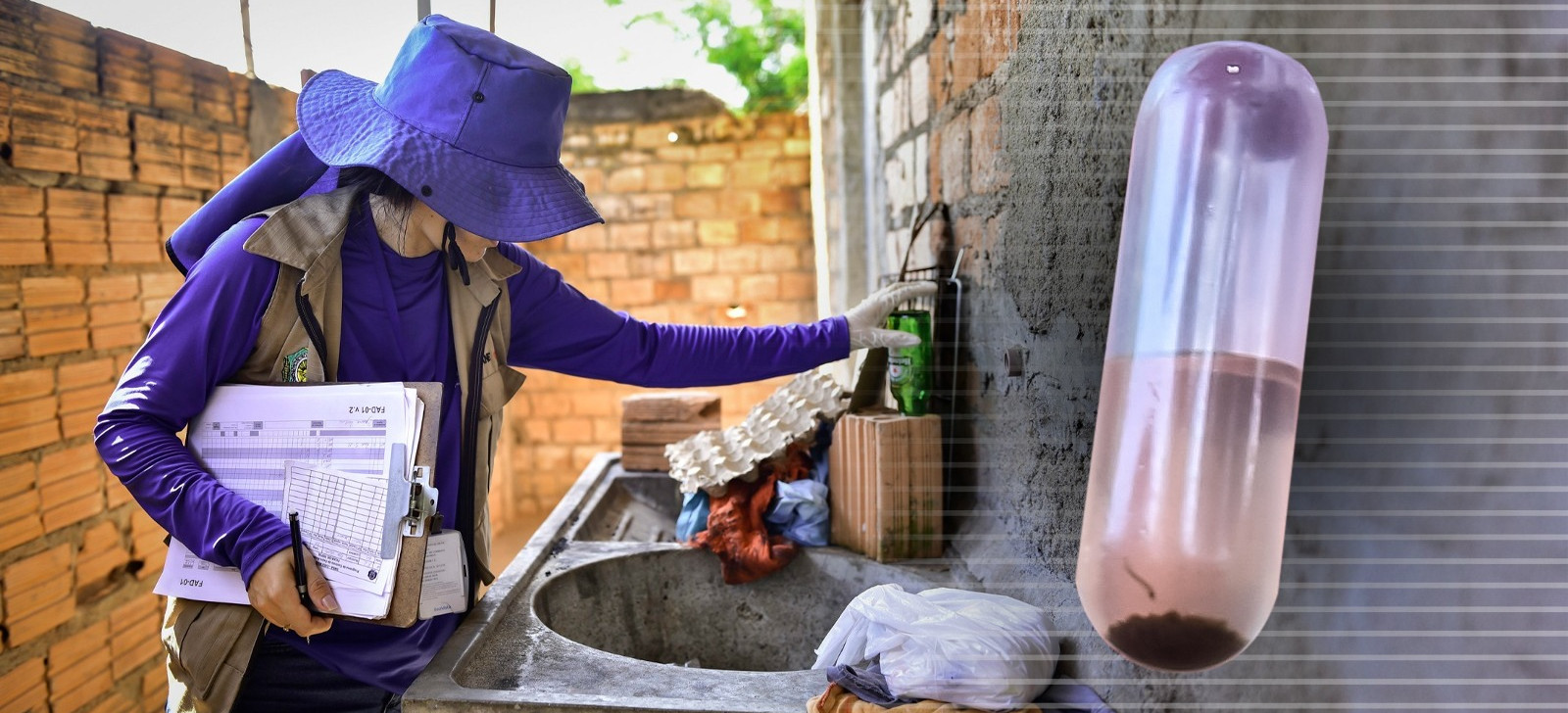Dengue cases increase at the Brazil-Venezuela border
20 de January de 2025

By Ian Vitor Freitas – From Cenarium
BOA VISTA (RR) – The Brazilian state of Roraima, located at the border with Venezuela, recorded a 227% increase in probable dengue cases in 2024 compared to 2023. This information was reported by the Yellow Fever and Dengue State Control Unit.
The data reflects the national scenario. According to the Arboviruses Monitoring Panel from Brazil’s Ministry of Health, on January 10, 2025, the country recorded a total of 6,644,336 probable dengue cases last year.
According to Rosangela da Silva, a specialist from the General Coordination of Health Surveillance (CGVS), in 2023, municipalities in Roraima reported 228 probable cases, while this number reached 747 in 2024.
“In the last four epidemiological weeks of 2024, the increase compared to 2023 has been consistent, which keeps us on alert. The data from the most recent Rapid Survey of Aedes aegypti Indexes (LIRAa/LIA), conducted in early December, shows that four municipalities are at high risk for a dengue epidemic, and eight are at medium risk”, she said.
Measures Taken to Combat Dengue
To curb the spread of the Aedes aegypti mosquito, the Yellow Fever and Dengue Control Unit has been strengthening the technical response capacity of municipalities through training, equipment acquisition, supervision, and in-person field activity monitoring.
Actions implemented include:
- Providing municipalities with equipment to carry out vector control actions as soon as a case is reported.
- Conducting 23 training sessions on the Clinical Management of Arboviruses for professionals in the state’s 15 municipalities.
- Developing the State Contingency Plan, which serves as a guideline for municipalities.
Main Challenges and Expectations for 2025
According to Rosangela, the main challenge in controlling the disease lies in maintaining the actions carried out by municipalities, especially at the start of the year, as changes in municipal administrations can disrupt continuity.
“There is a high turnover of field professionals working in vector control. Depending on the administration, entire teams may be replaced, leading to a breakdown in routine activities. Disease control relies on municipalities reducing infestation rates through home visits, educational actions, cleanup campaigns, social mobilization, and vector control in response to reported cases,” she emphasised.
Rosangela also highlighted that concerns are heightened by the country’s overall dengue situation. She reinforced the crucial role of society in preventing case numbers from rising in the coming months.
“We encourage the population to dedicate 10 minutes daily to inspect their yards, eliminating any objects that may hold stagnant water, cleaning water containers with soap and sponges, and also cleaning domestic animal water bowls to prevent the proliferation of Aedes”, she stressed.
Statistics in Boa Vista
In Boa Vista, capital of the State of Roraima, the number of reported dengue cases increased by over 1,250 between 2023 and 2024. In response, the Municipal Health Secretariat (SMSA) outlined prevention measures implemented by the Boa Vista City Hall.
These measures include periodic visits by the Zoonosis Control and Surveillance Unit (UVCZ) to neighbourhoods in Boa Vista to eliminate Aedes mosquito breeding sites and conduct health education activities with residents.
The UVCZ also performs vector control actions in areas with reported cases, aiming to reduce disease spread. The process involves home visits by Endemic Disease Agents (ACE) to eliminate breeding sites mechanically, followed by another team conducting chemical fumigation to kill adult Aedes mosquitoes.
Finally, the population is advised to conduct weekly inspections in their homes to eliminate mosquito breeding grounds, welcome agents who will be properly uniformed for identification, and report any breeding sites they cannot remove through the helpline 156.

